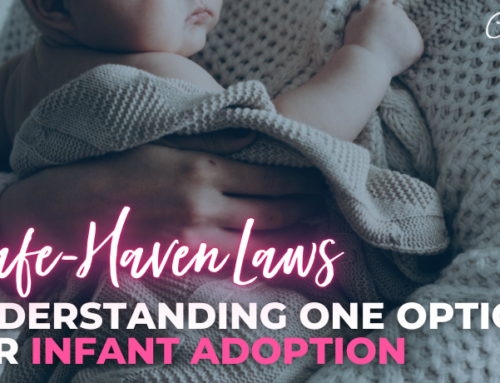Given the number of birth control methods and devices that exist, and the euphemistic terms that are often used to describe them, it can be a little confusing to understand the difference between what these methods are and how they work.
In particular, there is often confusion about the difference between “The Pill,” “The Morning After Pill,” and “The Abortion Pill.” Here is a primer that will help you to understand these terms and these methods better.
The Conception Process
Despite what many people, and particularly young women, think, conceiving a baby is not really that simple a process. While most people understand that conception occurs when a man’s sperm fertilizes a woman’s egg, this can only happen at certain times, so conception cannot occur just any time that you have sex.
A woman can become pregnant only at the time she ovulates, or releases an egg from her ovaries. This happens about once per month, on average, and the egg is viable only for a given amount of time, which varies from woman to woman. Prior to ovulation, the uterus prepares itself to receive a fertilized egg for implantation by a thickening of the lining of the uterus. When no implantation occurs, the lining is shed, which results in a woman’s “period”, or menstruation. That is why a woman who has had sexual intercourse and misses her period will think she is pregnant: if a fertilized egg has implanted itself on the wall of the uterus, the lining will not shed.
Consequently, many birth control methods operate by preventing fertilization from occurring, and this is called contraception–literally, “against conception.”
The Pill
The term “The Pill” is a bit misleading. There are several types of “The Pill”, and it is not just one pill, but a regimen of pills which must be ingested daily in order to work effectively as a contraceptive. One type of the “The Pill”, called the “combination pill” uses two types of hormones: estrogen and progestin (a synthetic form of the natural hormone progesterone), taken in a specific order. The “mini-pill” is progestin only, and the “extended-cycle” pill has hormonal contraceptives as well as inactive pills.
Estrogen and progesterone are both hormones naturally secreted by women, but when a woman ingests these hormones through The Pill, the hormones essentially “trick” a woman’s body into behaving as if the woman is pregnant. Progesterone, in particular, is a hormone that the body produces when a woman is pregnant to promote the development of the baby. Because it prevents ovulation, the progesterone in the Pill prevents pregnancy by not allowing normal ovulation to occur. When women take the pill regularly, it is an effective method of contraception because it completely disrupts her natural cycle.
Taking The Pill also causes other changes in a woman’s cervix and the lining of the uterus. In addition, women can experience some very negative side effects of taking The Pill, both short-term and long-term, including nausea, headaches, tender breasts, high blood pressure, or increased clotting.
The Morning After Pill
The Morning After Pill is referred to by some people as “Plan B”. The Morning After Pill is not nearly as effective as The Pill as a method of contraception, and is generally regarded as a “back-up” plan to be taken after a woman has had sex, but, for whatever reason, she failed to use effective birth control. For example, a woman may resort to this as a method of contraception if she has forgotten to keep up with taking The Pill, has had unprotected sex, used a method of birth control that failed, or was sexually assaulted.
The morning after pill is not a hormonal contraceptive, but is one of two drugs: Livonorgestrel or ulipristal acetate. They must be taken as soon as possible for maximum effectiveness. Both drugs operate to prevent or delay ovulation. However, unlike The Pill, it will only work after a person has had intercourse; it will not prevent pregnancy if taken before intercourse, and it will not, like The Abortion Pill, induce a miscarriage.
Like The Pill, The Morning After Pill can cause adverse side effects, including nausea, vomiting, headaches, dizziness, cramping, and other problems.
The Abortion Pill
Unlike The Pill and The Morning After Pill, The Abortion Pill is not a contraceptive. It is a combination of two drugs, mifepristone and misoprostol, specifically designed to terminate an existing pregnancy by causing an intended miscarriage of a healthy baby and to expel the baby from the uterus.
As noted above, progesterone is a hormone that a woman’s body produces to promote the growth and development of the baby inside the womb. Mifepristone blocks the production of progesterone. This causes the lining of the uterus to thin, and to release the baby that is implanted on the wall of the uterus. This detachment causes the baby to starve and suffocate to death. Misoprostol, taken a couple days later, induces labor, causing a woman to deliver the deceased baby.
Along with the cramping, discomfort, and bleeding caused by the induced labor and delivery (at a dose 20-40 times greater than what is given to induce labor in a delivery room), women can experience nausea, vomiting, headaches, and diarrhea. In about 1% of the cases, women will bleed so badly that surgical intervention is required.
Respect Your Body
Today, people are concerned about synthetic hormones being injected into livestock raised for human consumption, as well as about chemical and genetic alteration of agricultural products grown for human consumption. Yet very few people seem to be concerned about women who alter the natural functioning and composition of their own bodies by directly ingesting synthetic hormones and chemicals.
Women Deserve Better Healthcare
A Group 1 Carcinogen, hormonal birth control does not align with the healthcare you deserve [1]. When you ingest these drugs, you are not doing it to cure a terrible disease. You are not doing it to improve your health. You are doing it to avoid dealing with the consequences of an action, namely sex. The responsibility of bringing a new generation of human life and hope into the world belongs to men and women together. Yet it is the woman who places her body and her own health at risk with these drugs.
Take a step back and think about what a miracle your own body is, and learn about how it functions. Never be ashamed of your body and what it can do. Respect it, and take care of it, and take care of new life if it is gifted to you.At Choices, we believe that women deserve to be treated with respect and dignity, especially in a culture that works very hard to give them so little. Part of that respect is learning to treat yourself with love and kindness. If you find yourself troubled, if you have an unplanned pregnancy, contact Choices today, and let us show you what a greater love looks like.







